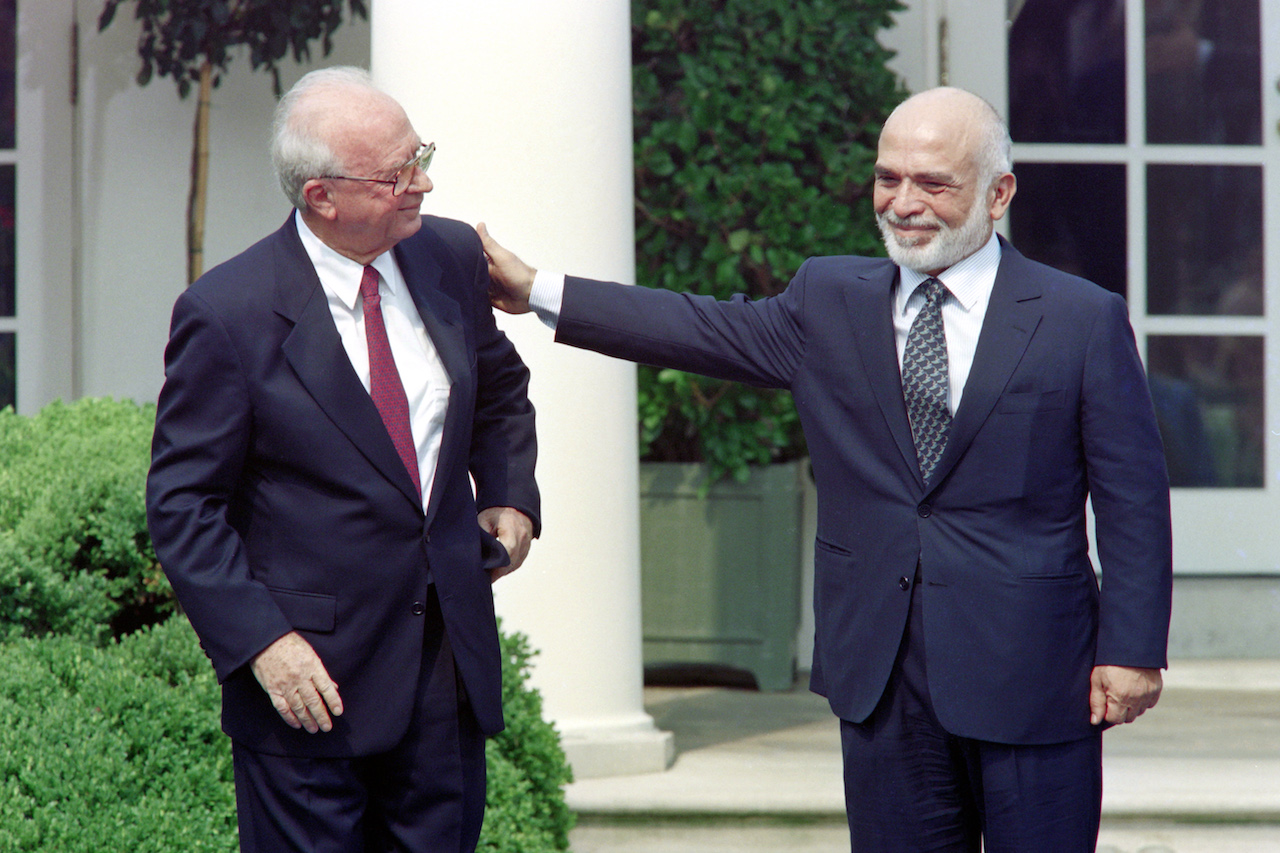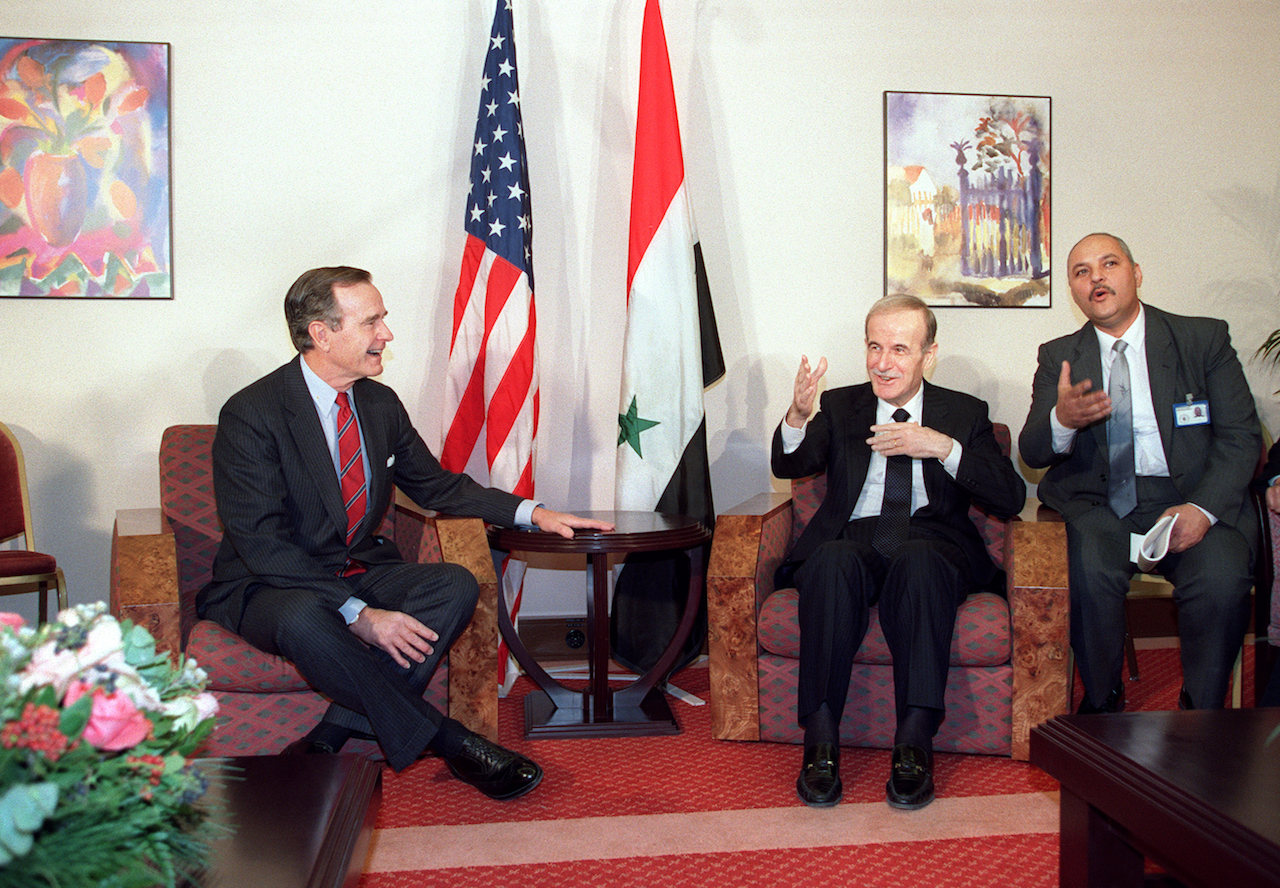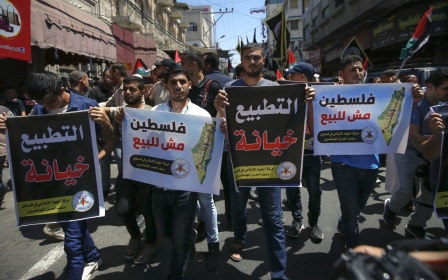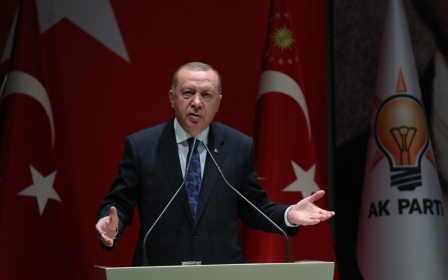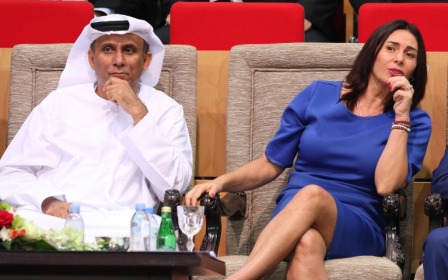Israel and the Arab world: A history of recognition attempts
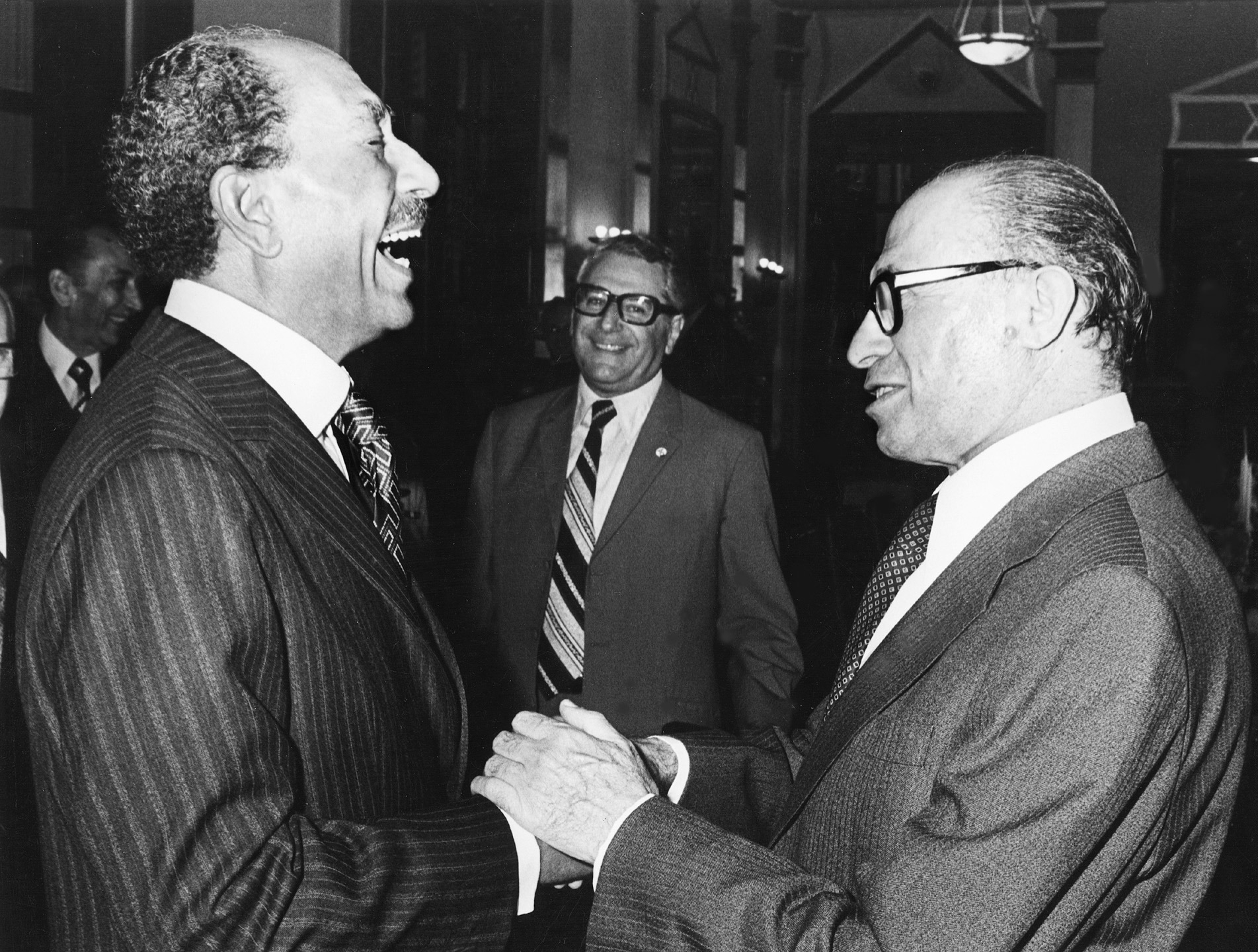
Much of the history of the Middle East in the past century or so has revolved around attempts to forge peace deals between Israel and its neighbours.
Since the creation of Israel in 1948 and the accompanying expulsion of more than 750,000 Palestinians from the area, there had only been two successful recognition agreements signed with Arab countries, alongside those with non-Arab countries, Turkey and Iran.
On Thursday, the UAE became the third Arab country to sign a deal normalising relations with Israel, making public what had long been an open secret of increased cooperation between the two countries.
With rumours swirling that Bahrain and Oman could soon follow suit, Middle East Eye takes a look at previous attempts - both successful and unsuccessful - to broker normalisation deals between Israel and the rest of the Middle East and North Africa:
Egypt, 1979
Perhaps the most famous and well-publicised of the peace deals struck between Israel and an Arab state, the agreement made at Camp David between Israeli Prime Minister Menachim Begin and Egyptian President Anwar Sadat was enormously controversial in its time, both in the wider Arab world and domestically.
The 1973 war between Egypt and Syria and Israel had been hailed as a victory by the Arab states (even though it was largely a stalemate) and Sadat saw his improved position as opportunity to open up negotiations with Israel.
The end result was a normalisation of relations between the two countries and the handing back to Egypt of the Sinai Peninsula that had been captured by Israel in the 1967 war.
It also eventually led, however, to Sadat's assassination in 1981 by a militant angry at the normalisation agreement.
Lebanon, 1982
While the majority of Lebanon’s numerous political and sectarian factions have long held negative attitudes to their neighbour to the south, Israel hoped to reach an agreement with Beirut in 1982.
Following the expulsion of the Palestine Liberation Organisation in 1982 in the wake of Israel’s invasion of Lebanon, the Israelis entered into discussions with Lebanese president-elect Bachir Gemayel about the possibility of a peace deal.
Having for years supported Gemayel’s right-wing Christian Maronite Kataeb party in Lebanon’s civil war, Israeli Prime Minister Menachim Begin pushed Gemayel to sign a peace deal during a meeting with him in September 1982.
Fearful of being seen as Israel’s puppet, however, Gemayel argued that he would need to reach a national consensus on the issue before anything came of it.
Whether there would have been any further changes remains moot, as Gemayel was assassinated by a member of the Syrian Social Nationalist party two weeks later. Israel occupied south Lebanon until 2000, and fought a ferocious war with Hezbollah in 2006.
Jordan, 1994
During the 1948 Nakba that created Israel and the 1967 war, Jordan accepted waves of Palestinian refugees. Over half of Jordan's population are of Palestinian origin.
Following the 1967 war and Israel's capture of East Jerusalem from Jordan, the Islamic Waqf that controlled the Al-Aqsa Mosque compound and other holy sites in the city - a body instituted by Jordan's King Hussein in 1948 - was allowed to remain in place.
It was not until 1994, a year after the signing of the Oslo Accords, that Jordan inked a peace treaty with Israel. The agreement came after several years of negotiations with Israeli officials and saw Jordan relinquish its claims to the occupied West Bank and East Jerusalem, which the kingdom had controlled between 1948 and 1967.
The deal saw major benefits for both countries in terms of trade, tourism, defence and water resources. Both countries also agreed to cooperate on counter-terrorism.
However, Israeli policies, particularly against the Palestinians, have done nothing to win over Jordan's people.
Under popular pressure, the Jordanian government in 2018 allowed a deal leasing farmland to Israel to expire.
And with the threat of annexation of parts of the West Bank looming earlier this year, King Abdullah threatened "massive conflict" and a tearing up of the 1994 Wadi Araba treaty.
Arab Peace Initiative, 2002
Also known as the Saudi Initiative, the Arab Peace Initiative saw a major push led by Riyadh to resolve the Israel-Palestine conflict.
Among the many provisions in the initiative plan - including the establishment of a Palestinian state with East Jerusalem as its capital - was the promise that the members of the Arab League would normalise relations with Israel and consider the "Arab-Israeli conflict" to be over.
The initiative also called for Israeli withdrawal from the occupied Syrian Golan Heights and the areas of southern Lebanon (such as the Shebaa Farms) that it still controlled.
The Arab League has repeatedly re-endorsed the initiative, but Israel has balked at its committment to the right of return for Palestinian refugees and the idea of returning to its 1967 borders. The initial summit convened for the initiative also coincided with the March 2002 Passover massacre, one of the worst acts of violence against the Israelis in the Second Intifada, which killed 30 civilians in the Park Hotel in the city of Netanya.
Syria, 1990s and 2010s
The Baath Party, which seized control of Syria in a coup in 1963, set itself up as the staunchest opponents of Israel, a position that was further reinforced after Israel's conquest of the Golan Heights in the 1967 war.
Despite this, in the 1990s - in the wake of the 1991 Madrid Conference - Syrian President Hafez al-Assad did engage in negotiations with Israel, though they eventually came to nothing, with each side accusing the other of being fundamentally untrustworthy.
The issues of the resource-rich Golan Heights - which Israel formally annexed in 1981 in a move never recognised by the international community - and Syria's support for Hezbollah in Lebanon have been the crucial sticking points.
Although many have suggested that Syria and Israel came close to an agreement in 2000, eventually the two sides could not agree on where to draw their respective borders.
Following Hafez's death and the ascension of his son Bashar in 2000, some saw a renewed home for negotiations. While relations remained officially frosty, in 2010 secret negotiations took place between Assad junior and then-prime minister Benjamin Netanyahu, which reportedly would have included Israeli withdrawal from the Golan Heights.
The talks collapsed, however, in part over Syria's unwillingess to break from regional ally Iran and the eruption of the 2011 uprisings that eventually spiralled into civil war.
Libya, 2004
Muammar Gaddafi had, since taking power in Libya in 1969, been a staunch opponent of any negotiations with Israel.
However, with his status as an international pariah easing in the 2000s, Gaddafi began engaging in secret talks with Israel about a peace deal. Gaddafi's son Saif al-Islam had been a key figure in opening the talks.
It was suggested that the 2003 Iraq war, which saw the US using military force to crush a Saddam Hussein-led government that had long been one of Israel's most implacable foes, had been an impetus for pushing for negotiations.
Although they led nowhere, Gaddafi's rhetoric against Israel - which he always referred to as the "Zionist entity" - was often at odds with his behind-the-scenes tactics, and he later reportedly sought Israeli help in 2011 to stem the tide of Nato attacks against him during the Arab Spring uprisings.
United Arab Emirates, 2020
The peace deal with the UAE, dubbed the Abraham Accords, made official and public what had been a long-running relationship between the two countries.
US President Donald Trump lauded the agreement between the two countries as "historic" and said the agreement would allow the two countries to cooperate openly on security, trade and diplomacy.
Mohammed bin Zayed, the crown prince of Abu Dhabi, tweeted that the agreement would also "stop further Israeli annexation of Palestinian territories".
However, Netanyahu has said that annexation was "still on the table", and the Palestinian Authority branded the deal a "betrayal".
Middle East Eye propose une couverture et une analyse indépendantes et incomparables du Moyen-Orient, de l’Afrique du Nord et d’autres régions du monde. Pour en savoir plus sur la reprise de ce contenu et les frais qui s’appliquent, veuillez remplir ce formulaire [en anglais]. Pour en savoir plus sur MEE, cliquez ici [en anglais].


